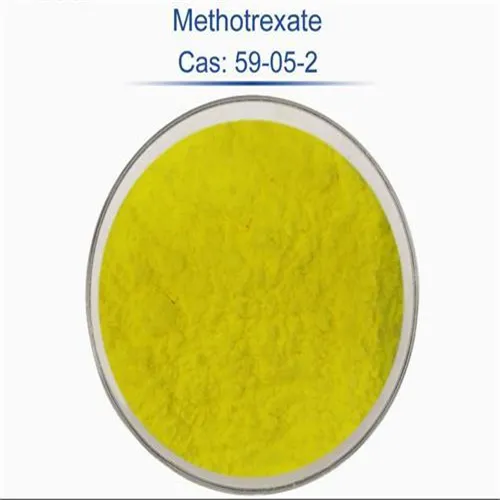Warning: Undefined array key "title" in /home/www/wwwroot/HTML/www.exportstart.com/wp-content/themes/1198/header.php on line 6
Warning: Undefined array key "file" in /home/www/wwwroot/HTML/www.exportstart.com/wp-content/themes/1198/header.php on line 7
Warning: Undefined array key "title" in /home/www/wwwroot/HTML/www.exportstart.com/wp-content/themes/1198/header.php on line 7
Warning: Undefined array key "title" in /home/www/wwwroot/HTML/www.exportstart.com/wp-content/themes/1198/header.php on line 7
- Afrikaans
- Albanian
- Amharic
- Arabic
- Armenian
- Azerbaijani
- Basque
- Belarusian
- Bengali
- Bosnian
- Bulgarian
- Catalan
- Cebuano
- China
- China (Taiwan)
- Corsican
- Croatian
- Czech
- Danish
- Dutch
- English
- Esperanto
- Estonian
- Finnish
- French
- Frisian
- Galician
- Georgian
- German
- Greek
- Gujarati
- Haitian Creole
- hausa
- hawaiian
- Hebrew
- Hindi
- Miao
- Hungarian
- Icelandic
- igbo
- Indonesian
- irish
- Italian
- Japanese
- Javanese
- Kannada
- kazakh
- Khmer
- Rwandese
- Korean
- Kurdish
- Kyrgyz
- Lao
- Latin
- Latvian
- Lithuanian
- Luxembourgish
- Macedonian
- Malgashi
- Malay
- Malayalam
- Maltese
- Maori
- Marathi
- Mongolian
- Myanmar
- Nepali
- Norwegian
- Norwegian
- Occitan
- Pashto
- Persian
- Polish
- Portuguese
- Punjabi
- Romanian
- Russian
- Samoan
- Scottish Gaelic
- Serbian
- Sesotho
- Shona
- Sindhi
- Sinhala
- Slovak
- Slovenian
- Somali
- Spanish
- Sundanese
- Swahili
- Swedish
- Tagalog
- Tajik
- Tamil
- Tatar
- Telugu
- Thai
- Turkish
- Turkmen
- Ukrainian
- Urdu
- Uighur
- Uzbek
- Vietnamese
- Welsh
- Bantu
- Yiddish
- Yoruba
- Zulu
ئیلول . 25, 2024 11:46 Back to list
Sodium Lauryl Ether Sulfate SLES 70 for Effective Cleaning and Foaming Solutions
Sodium Lauryl Ether Sulfate (SLES) 70 is a widely used surfactant, particularly favored in personal care and household cleaning products. This anionic surfactant is known for its excellent foaming, emulsifying, and cleansing properties, making it an essential ingredient in many formulations such as shampoos, body washes, dishwashing liquids, and other cleaning agents.
SLES is derived from natural plant sources, primarily from coconut or palm oil, which adds an aspect of sustainability to its use. The production process involves the ethoxylation of lauryl alcohol, followed by sulfation. The resulting compound is a versatile surfactant that can effectively break down oils and dirt, allowing for easy removal during washing.
.
Another noteworthy characteristic of SLES is its mildness compared to other sulfates, such as sodium lauryl sulfate (SLS). While SLS can be harsh and irritating to the skin, SLES has a lower irritation potential, making it a preferred choice for formulations intended for sensitive skin. This quality has made it increasingly popular among consumers looking for gentler alternatives without sacrificing cleansing performance.
sodium lauryl ether sulphate sles 70

However, it is essential to recognize that despite its milder nature, SLES may still cause irritation in certain individuals, especially those with pre-existing skin conditions or sensitivities. Therefore, product formulations often include moisturizing agents or skin conditioners to counteract any potential dryness caused by surfactants.
Using SLES 70 in formulations aligns with the trend toward eco-conscious product development. Many manufacturers are investing in sustainable sourcing and production practices, aiming to reduce their environmental footprint. SLES is also biodegradable, which further enhances its appeal in a market increasingly concerned with environmental impact.
In summary, Sodium Lauryl Ether Sulfate 70 is a key ingredient in the formulation of various cleansing products due to its effective surfactant properties, versatility, and relatively mild nature. As consumer preferences shift toward gentler, more sustainable products, the role of SLES in personal care formulations is likely to continue growing. It stands as a testament to how science and nature can converge to create effective solutions for everyday cleaning needs while addressing consumer demand for safer, more eco-friendly options.
Latest news
-
Certifications for Vegetarian and Xanthan Gum Vegetarian
NewsJun.17,2025
-
Sustainability Trends Reshaping the SLES N70 Market
NewsJun.17,2025
-
Propylene Glycol Use in Vaccines: Balancing Function and Perception
NewsJun.17,2025
-
Petroleum Jelly in Skincare: Balancing Benefits and Backlash
NewsJun.17,2025
-
Energy Price Volatility and Ripple Effect on Caprolactam Markets
NewsJun.17,2025
-
Spectroscopic Techniques for Adipic Acid Molecular Weight
NewsJun.17,2025

